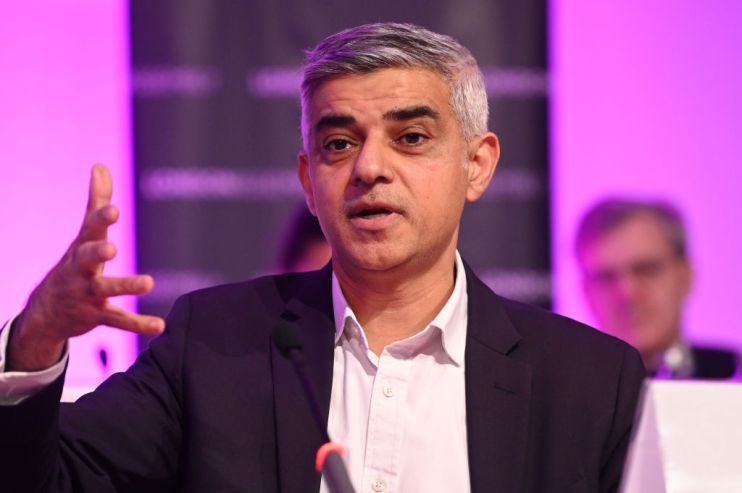Khan’s mayoralty is an audition for Labour leader – but it’s at our expense

Today was supposed to be an important day for the administration of London. The Crystal, the new home of City Hall in Newham, Royal Docks, was due to open and inaugurate a fresh chapter in our governance: a slimmed-down, more efficient headquarters for the mayor and the London Assembly in the east of the capital.
It hasn’t happened that way. Although City Hall’s plenary chamber is open and will be used for some sessions of the assembly, most of the Greater London Authority’s staff have been told to remain working from home or in their temporary offices. There have been problems with the heating system, a shortage of toilets and a host of building works running badly behind schedule.
This setback has been bad for the mayor’s public image. The move to Newham was all about saving money: £61m over five years which, Khan’s spinners said, would be invested instead in front-line services. Equally, the handling of the delay has been clumsy. A spokesman for the GLA offered no apology, merely expressing “disappointment” that the move was being pushed back. The impression was of arrogance and defensiveness.
In other circumstances, this would be a minor matter. Public sector building projects are almost always behind schedule (and over budget), and this will have surprised few people. But Sadiq Khan’s tenure as mayor has been played out as an exercise in positioning and public relations. Few doubt that he still has ambitions to lead his party—a noble enough aspiration—and some accuse him of caring more about playing to the Labour Party electorate than getting on with running London.
Khan’s concrete achievements have been scant. Transport for London has been on the brink of a financial crisis for some time, and the mayor’s antagonistic approach to the government and the Treasury in particular has not smoothed relations. He had pledged to prevent fares rising, but failed, having to “clarify” that he had only been referring to single fares and pay-as-you-go, not season tickets. Instead he made hay with his anxiety that advertising on the Tube might “body shame” or demean women. All politicians choose their battles.
On housing, he campaigned in support of rent freezes, only to abandon the policy once elected. Instead, he focused on opposing development of the Green Belt. His creation of Homes for Londoners, an inclusive and well-meaning move, has been slow to address the lack of social and affordable housing.
Perhaps the most damning item on the charge sheet is policing and crime. The mayor has described knife crime, one of the most worrying trends in London, as part of a national issue and blamed government cuts. The fact remains that knife crime has risen every year of his tenure, having fallen under his predecessor Boris Johnson. And crime remains at a much higher level in London than in the rest of the country.
The mayor’s critics look at these problems—which are genuine challenges and cannot be addressed overnight—and then turn a jaundiced eye towards the alacrity with which Khan created a Commission for Diversity in the Public Realm in 2020 to address “problematic” statues and public monuments, red meat for liberal metropolitan supporters. They wonder if his criticism of former US president Donald Trump as akin to “European dictators of the 1930s and 40s” was a helpful intervention for London’s global face, or a pose struck to please his supporters.
Boris Johnson undoubtedly used his time as mayor of London to polish his profile and make a huge step towards becoming prime minister. One should not be too critical of Sadiq Khan for trying to take the same approach. But being the capital’s chief executive and ambassador should not be written off as an audition.
Now, more than ever, London needs inspirational and far-sighted leadership. Brexit and the Covid-19 pandemic have thrown up two enormous challenges which require a wholesale rethinking of how London works and how it remains a successful global city. It is hard to see how Khan has demonstrated his capacity to provide that leadership; worse, he is becoming accident-prone. When bad news seems to seek you out, it is often an indication that the rot has set in. Mayor Khan should be careful about how closely he emulates the current prime minister.